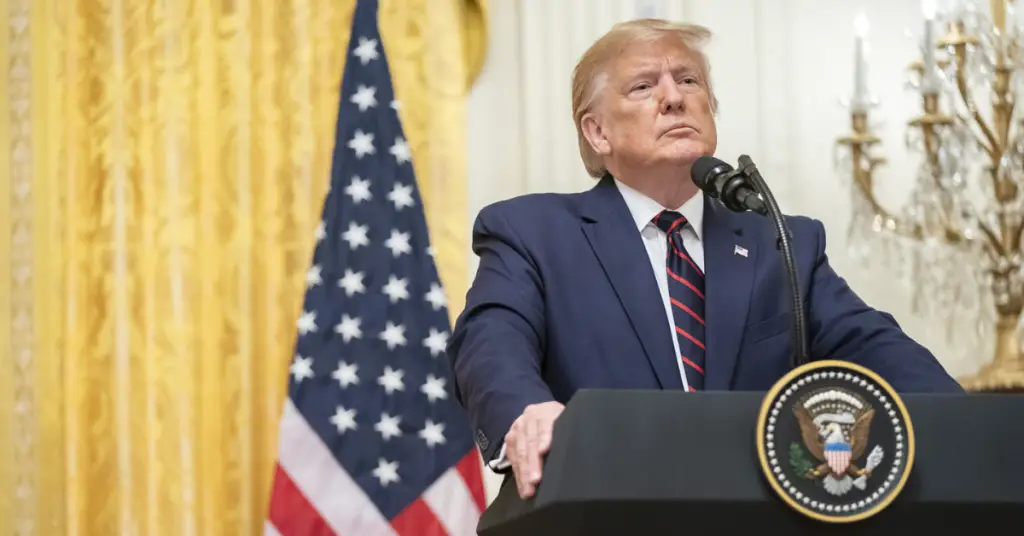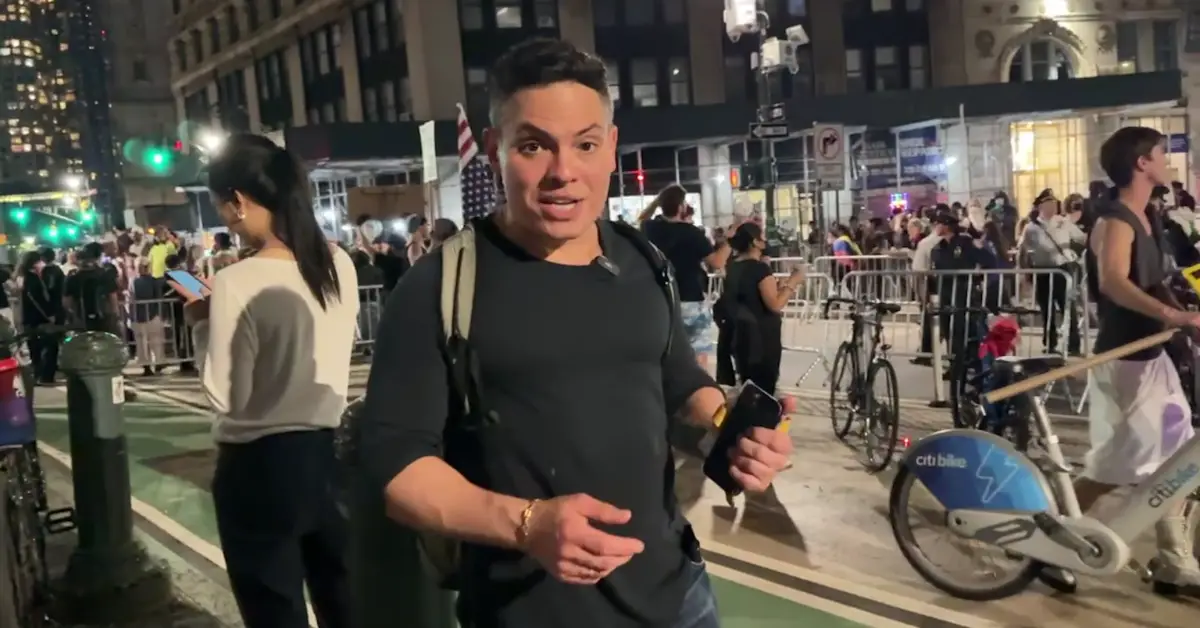President Donald Trump revealed a startling possibility: U.S. citizens could be deported by mistake. Trump’s admission has raised alarms across the country as the administration continues its aggressive stance on deportations, with many wondering what this means for the future of immigrants in the U.S. and whether even citizens could be swept up in the government’s sweeping deportation efforts.
The interview comes on the heels of the controversial deportation of Kilmar Abrego Garcia, a Salvadoran father who was sent back to El Salvador due to an administrative error. This deportation has sparked outrage, not only because of the mistake but also due to the Trump administration’s insistence that Garcia, a member of the MS-13 gang, would never be allowed to return to the U.S., even though the error was acknowledged. In this context, Trump’s comments have opened a new chapter in the debate over U.S. immigration policies and their potential to affect even U.S. citizens.
When asked about the possibility of deporting a U.S. citizen by mistake, Trump’s response was blunt: “Let me tell you that nothing will ever be perfect in this world.” The comment was striking, especially as Trump is known for his hardline stance on immigration, often painting immigrants in the U.S. illegally as dangerous criminals who pose a threat to national security.
This admission marks a departure from previous statements where he repeatedly emphasised his administration’s meticulous attention to detail in deporting individuals who are not U.S. citizens.
Trump’s comment on deporting citizens came amidst broader discussions about his administration’s deportation practices. “I’m not involved in that. I have many people, many layers of people that do that,” Trump stated, distancing himself from the actual process of deportations.
However, his statement raises an important question: If U.S. citizens can be deported by mistake, what guarantees are there that the administration will not continue making errors in future deportations, especially as the focus shifts to citizens born in the U.S.?
The situation has been further complicated with the administration’s ongoing efforts to remove some green card holders from the country, including activists and students who have been involved in protests or other politically charged activities. One such case is that of Mahmoud Khalil, a graduate student at Columbia University and pro-Palestinian activist.
Khalil was recently targeted for deportation after being labelled as “pro-Hamas” by the Trump administration. Khalil’s deportation case has garnered widespread attention, especially after it was revealed that he had been subjected to a “charade of due process” and a blatant violation of his right to a fair hearing. His legal team argues that the deportation is nothing short of an attempt to suppress political dissent.
It’s worth noting that Trump’s administration has faced multiple accusations of bypassing due process when it comes to deportations. A recent district court ruling from Louisiana slammed the administration for deporting a two-year-old U.S. citizen to Honduras with “no meaningful process.”

This ruling underscores the growing concern over the lack of transparency and fairness in the deportation process, with many critics accusing the Trump administration of using these deportations as political tools rather than following the established legal process.
The controversial deportation of Abrego Garcia has been a particularly significant case in the eyes of critics. Garcia was deported despite his claim of being wrongfully accused, and the U.S. government acknowledged the error that led to his deportation.
However, Trump’s administration has remained steadfast in its decision, continuing to assert that Garcia is a member of the MS-13 gang and should not be allowed to return to the U.S. This decision highlights the administration’s disregard for due process and raises serious concerns about the fairness and transparency of deportation proceedings.
Moreover, in a move that has further escalated tensions, the Trump administration has used a wartime law from 1798, the Alien Enemies Act, to deport Venezuelan nationals to a notorious Salvadoran mega-prison. These individuals were deported without any due process, a practice that legal experts have widely criticised.
In a dissenting opinion, Justice Sonya Sotomayor condemned the use of the Alien Enemies Act in deportation cases, pointing out that it was never intended to be used for peacetime deportations. The law was designed to deal with foreign nationals during times of war, not for handling the deportation of immigrants from peaceful nations.
Despite the mounting criticism, Trump remains resolute in his belief that the government must continue its deportation efforts. During the interview with The Atlantic, he dismissed concerns raised by legal experts, including the notion that a trial would be necessary before deportations could take place. “We’re getting them out, and a judge can’t say, ‘No, you have to have a trial,’” Trump said, arguing that the lengthy process of trials would result in a “very dangerous country.”
This defiant approach has led to further legal battles, as courts have found probable cause to hold the administration accountable for its actions. Judges have expressed concern over the speed with which deportations are happening, with some calling the government’s actions reckless and unconstitutional. But the Trump administration has continued to push forward, arguing that its policies are necessary for national security.
In addition to the criticism from legal experts, Trump’s approach to deportations has also faced backlash from within his party. Some Republicans have expressed concerns about the growing number of deportations and the possibility of wrongfully targeting U.S. citizens. With his focus now turning to “homegrown,” there are fears that more innocent people may be caught in the crossfire.
This latest chapter in the U.S. immigration debate has sparked national conversation about the future of deportation policies under Trump’s administration. With mounting legal challenges and growing public unrest, it remains to be seen how long this aggressive stance will last. What is clear, however, is that as the Trump administration continues to double down on its deportation efforts, the stakes are higher than ever for both immigrants and U.S. citizens alike.
Disclaimer: This article has been meticulously fact-checked by our team to ensure accuracy and uphold transparency. We strive to deliver trustworthy and dependable content to our readers.




